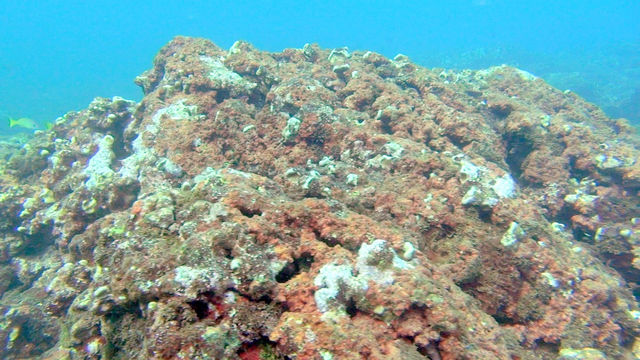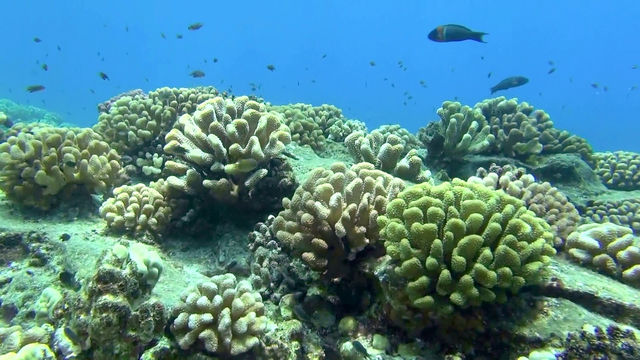HANALEI — Documentary filmmaker Harry Rabin has spent the last four years working with ocean experts to create his show “Reef Madness,” and out of that TV show, a nonprofit was born.
The show is a chronicle of the deterioration of the ocean’s coral reefs. It was in production for three years, and then a year and a half ago, Rabin shot the footage.
“I worked in the environment with Terry Lilley (Hanalei marine biologist) and NOAA and DLNR, and a lot of people who have a stake in the community,” Rabin said. “And because I worked in the ocean environment, I was seeing the mess.”
Bits and pieces of that show have now aired on Nat Geo, and are available online, but Rabin said the show is still “trying to find its own home.”
While he was working on the project, Rabin decided there was a need to connect the information with a way for the audience to help.
So he brought together some ocean scientists and colleagues, and they created Reef Guardians Hawaii, origionally called Reefs in Peril.
The organization is a science-based nonprofit that aims to educate, as well as work with universities, businesses, community members and government agencies, to understand the rapidly changing coral reefs and near-shore habitats.
Rabin brought on board Robin Mazor of Kapaa and Tom Woods of Hanalei as his co-founders of Reef Guardians Hawaii.
Mazor’s background is in human development, business growth and team building. She’s worked with start-up operations and is trained in executive leadership and organizational management.
Woods has a history in competitive fishing and has accumulated over 10,000 hours underwater as a commercial diver.
“I’ve seen the derogation of the reef and it’s pitiful,” Woods said. “And out of all the islands that I’ve visited, our reefs are in the worse shape of all the other (Hawaiian) islands.”
After the board of directors was formed, they brought onboard a network of 17 resource people and advisers — comprised of folks from the National Oceanic and Atmospheric Administration, Heal the Ocean, and California Marine Sanctuary Foundation, as well as research scientists, marine biologists and experts in ocean acidification.
“We have to base our decisions and information on good research and observation and that’s what our advisers provide,” Woods said. “So it’s our role now to get the research in place and to market what is causing the derogation that’s being observed and reported.”
Education and the spread of information isn’t the only goal of Reef Guardians Hawaii, however. The intent is to be a hands-on organization.
There will be two tiers of memberships in Reef Guardians Hawaii: a free membership and a paid membership. Woods said the reason for that is to give people of all income levels a chance to be involved. Membership fees haven’t been set.
“We’re looking for a membership that is full of take-action people,” Woods said. “Harry’s a heavy take-action guy.”
Those who join the organization will be dubbed “Reef Guardians,” and they will be tasked with being the eyes and ears of the organization. They will be in the trenches, so to speak, creating real change on the ground level.
“So who are Reef Guardians? They are regular people from all walks of life that are service-oriented people,” Woods said. “Reef Guardians are take-action people.”
Woods explained that the organization is looking for people to join from all walks of life, with all kinds of talents and backgrounds. The organization is even involving kids by bringing information about the coral reefs to students.
Lilley, Reef Guardians Hawaii adviser, has already taken kids out into the water to teach them how to be the next generation of Reef Guardians.
Woods said Reef Guardians Hawaii wants people who respect and value life, who value making a positive impact on the world, and who value what they love — including the ocean.
“Of course, they all do have concerns about the ocean, that’s a given,” Woods said. “But it’s people asking the question: What can I do to make a difference?”
Info: www.reefguardians.org






